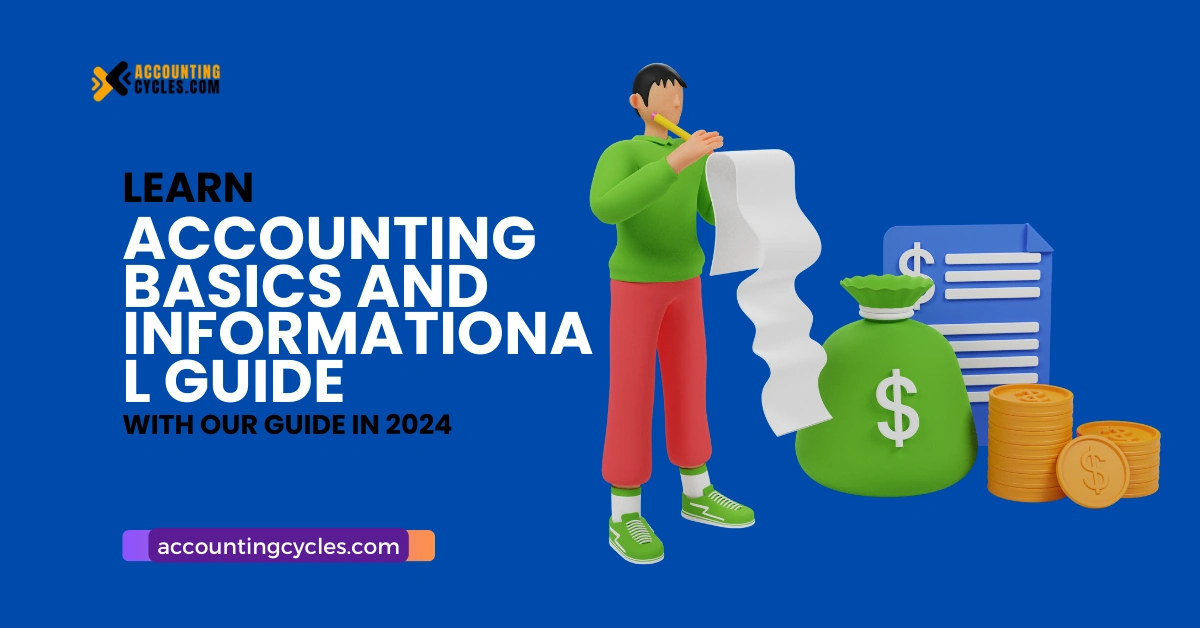The catering industry is a diverse field that involves many different specialties. There are a variety of positions, making catering an endeavor that attracts many entrepreneurs. It doesn't matter if it is a wedding, corporate party an interaction gathering, or anything like that; food plays the most important role which makes it both a profitable and interesting business.
Scope of Catering Business
The catering sphere covers almost everything and it does not all revolve around food. Instead, within this vast space, where lies opportunities and innovation. Be it from extravagant weddings and business functions to simple dinners and deeply intimate affairs; the need for catering services is present as well as weather expanding.
While doing the correct approach, such caterers have to benefit many existing markets as well as go new ways exploring either traditional flavors or trendy culinary themes. The range of possibilities in the catering industry is something that not only enriches but also provides a terrain where entrepreneurs can express their imaginations and skills over time.
How to Design a Catering Business Plans
Generating a business plan for your catering which is intended to be like an enterprise incubator of your creative passion is the initial step towards success. A properly devised plan not only presents a destination but also ensures that potential investors look into their business or lays the ground for growth and prosperity.

If the outline below is applied while creating your plan, you will be able to cover all the critical issues.
- Find Your Specialty
When you define your special unlike other catering services, you will substantially impact your market. Whichever is your strength in cooking gourmet dishes, ethnic foods, or flavorful and healthy food, you should identify your niche to reach a specific clientele and create a specialized marketing strategy.
- Type of Food
It is fundamental in this connection to determine the kind of food that you are going to offer which should also be closely related to your specialization of the restaurant as it may help to define your brand.
Variety is one of the key issues in any restaurant’s menu; from traditional and modern dishes to multi-cultural cuisine with a contemporary touch, your dishes must reveal the best of your culinary skills and meet the market demand, so that guests are fully satisfied with the experience.
- Types of Functions
The list of catering types is long and it goes through plenty of occasions for each of which you need to create a different plan. Customers’ needs could be different, and it would be essential that catering to large-scale weddings and corporate functions differs from that of personal gatherings. Hence deliberate planning, menu design, and service styles need to be influenced too.
- Capacity
From food preparation and equipment to labour and staff, your ability to conduct events is at the mercy of different resources available to you. Evaluating your capabilities could be useful in defining the achievable goals and in meeting such goals the expected quality can be supplied without having the capabilities exceeded.
- Workforce
The food industry of such high quality and unmatched reliability would not have been possible if the workforce had not b... From chefs and servers to logistics and support staff, the team has a sizeable workforce and this should be reflected in the quality of service offered.
Develop a hiring plan with due attention paid to several positions as well as to training and retention that will guarantee smooth operations, and quality of service.
- Carrying out Customer and Competitional Research
Knowing your target market and carrying out competitive benchmarking are the two important ingredients in creating a unique consultancy business.
- Talk to Your Financed and Your Learned.
To begin, involve your social circle which might adapt to and employ your product or service. Friends and family can share with you the caterer’s services they have tried. This would represent for you their best practice since most of them needed change and you would know what is lacking about their services.
- Call up Frequent Caterer Users
Contact the ones who have frequently deployed catering companies, through event planners, corporate offices, and community center project managers. What these discussions do is bring out people’s favorite things and areas of concern, so that through a wider perspective the service provider can fix the targeted market’s expectations.
- Read the Reviews
Reviews websites like Google, Yelp, Facebook, and other social media platforms are exceptional sources of information. They not only show customers what products they consider valuable but also emphasize the weak points that need improving. Take sufficient care not only to review the positive and the negative responses your competitors have acquired but also to do the same over your products or services.
- Look at the Big Picture
Enlarge your view by analyzing the market trends and reports on the food services industry. Knowing about the wider market, that is, what kind of food trends and how consumers are changing in their lifestyle will help set your business in a more appropriate strategic position that will take the business for a longer period.
Investigate Local Licensing and Permits
Depending on where you situate, a food service license, sanitary permits, and a business license are some requirements you need to have. In this matter, reach the local authorities to get confirmation that everything related to food safety regulations and the standards of the business operations is clear.

- Create Your Menu
The structure menu is a shape, a symbol, and the introduction of your brand's identity and your culinary philosophy. When designing your menu, consider the following: When designing your menu, consider the following:
- Diversity and Flexibility:
Provide a range of options that includes foods that follow different dietary regimes and that are safe for people with allergies of any sort, thus making sure everyone is well covered.
- Seasonality:
Those seasonal ingredients for the sake of freshness and attraction must be added to the menu to add more variety.
- Scalability:
Develop plates that can be manufactured in large quantities quickly and will still have the desired taste profile.
Plan Your Location
Picking certainly your location for the kitchen operation is critical. Community kitchens with low-density labor may suffice for smaller operations but health standards still need to be met and enforced.
Renting a commercial kitchen is available in great space and opportunities, yet nevertheless, it's also expensive. Think of the nature of your event and the amount of business that you can attract when determining the right option.
Get Ready to Buy Equipment
Furnishing your kitchen is a rather expensive matter. Prepare a complete inventory that will cover both the cooking machinery and transport gadgets. Last but not least, ensure quality and affordability by leasing or buying used items for high-cost things.
Prepare a Business
Having a professional business plan that serves as a road map to victory is imperative. It is your vision, goals, and plans laid down on the paper.
- Startup Budget and Financial Projections
Give details of your initial financial requirements, which are buying equipment, license paying, and others. Project the revenues concerning your possible outreach and your pricing strategy.
- The Problems You Solve
Find out the exact needs of your audience and recognize how your service is an answer to a question. From a five-star dinner meeting to accommodating dietary restrictions, let them know how you carry this out.
- What Sets You Apart
Underline the feature that distinguishes your catering business. This can include your culinary style, exceptional service, sustainability, or treating your visitors with great creativity. Differentiators will be the driving force of your marketing strategy and with it, you will be able to entice clients to choose you.
- The Resources Your Business Needs
Bullet points out the major items required to run your operation well, for instance, a robust supplier network, experienced personnel, and effective delivery systems.
- Your Mission Statement and Vision.
Compact and clear, the purpose of your business which is its mission statement should state what it is about while a vision statement is the one which should stimulate and guide you to where you want to be in the future.
- Motivation goes into working for the business.
Tell the story about how you made up your mind to start catering. The potential journey that took your passion from being a personal journey for cooking, the high demand of bringing people together over food, or the unique market opportunity you saw you narrate by elements to help your business plan stand out.
- Catering Company Startup Costs
Include to your startup a detailed explanation of expenses needed to begin the catering business. A list of required items like kitchen equipment and initial inventory should be covered in it along with cases of marketing and legal charges, thereby making investors or lenders see the picture concerning the funding requirements.
Create an Affordable Marketing Strategy for Your Catering Company
- Keep Menus and Prices Fresh
With some creativity, you can launch an impactful marketing campaign without emptying your wallet. Changing the menus and prices will ensure that you engage your audience.
- Curate Your Reviews on Social Media
Keep changing your website and social media postings like menus and costing regularly This additionally helps in SEO but remains the latest for current clients for making wise decisions. Hit the nail on the social media head by curating your reviews. Be equally professional in responding to constructive and negative feedback.
- Post Food Pictures
Social media visuals rule the roost. Make sure you upload vivid pictures of your food each time. A fact: Such images may contribute to a significant increase in sales and new clients. One great idea would be to hire a professional photographer or to learn the art of food photography to make all your gourmet dishes look as great as they are.
- Word of Mouth Marketing
Involve your happy clients by asking for referrals and recommending your services. Referral programs or small blessings for clients who bring new customers on board can help you a great deal in growing your customer base based on an organic philosophy.
Choose a Business Structure
Getting the legal identity, tax obligations and aspects of liability rights is directly dependent on the business structure selection. Options include:
- Sole Proprietorship: Simple and easy to use, ideal for small one-person firms, but liability for business debts is on the individual.
- Partnership: ideal situation when you are beginning the business with your partners or more where all of you share your profits, losses, and liabilities.
- Limited Liability Company (LLC): Providing the flexibility of being a partner with the protection of a corporation to the personal assets from the business debts.
- Corporation: More sophisticated, thus, suitable for companies seeking to scale up or secure outsource financing. It ensures legal obligations but has some additional regulations.
Name Your Business
Your business name is not just an address, it is an extension of your brand personality as well. It ought to be memorable, represent your services, and cast a spell on your prospective clients.
Verify its uniqueness through a search of trademarks and domain availability. Legally secure your business name by registering it after checking with the relevant local government authority.
Get Insured
Insurance is a key part of risk management strategies, shielding your business against the eventualities no one can predict in advance.
- General Liability Insurance: Encompasses injuries, failures, or damages that may arise during your catering operations.
- Commercial Property Insurance: Shields your assets such as vehicles, inventory, and property from theft and destruction.
- Workers' Compensation Insurance: Essential if you have employees and protect health damages that are sustained during work.
- Professional Liability Insurance: Prevents any recklessness claims, professional negligence, or inability to deliver services as promised.
- Commercial Auto Insurance: Vital in your business if you use vehicles for transportation of supplies or staff.
Start Bookkeeping ASAP
Proper bookkeeping plays a significant role in maintaining the healthy financial status of your business. including documenting revenue, expenditure, and financial transactions to maintain an account, predict the cash flow, and be prepared for taxes.
It might be a good idea to apply accounting software that will help you with this process, and you can always use the service of a professional bookkeeper or accountant.
Important Tips to Run Catering Business Successfully
- Focus on Quality: Don't inferior the quality of your food and service. Satisfied clients are your troop.
- Build Relationships: Maintain good relationships with suppliers, buyers, and industry associates. Networking can be a great platform for seeking new opportunities.
- Stay Flexible: Learn to quickly adapt to the changing market trends, customer choices, and unexpected difficulties.
- Market Continuously: Utilize different marketing channels to keep exposure levels constant. Do not forget to update your portfolio regularly by including pictures of the most recent events you have done to reflect your expertise better.
- Invest in Your Team: Your employees are regarded as the real face of your company. Provide training, recognition of professionalism, and create a healthful work environment.
- Seek Feedback: Actively seek customers' views and act thereby to the benefit of your services.
FAQ’s
1. As a caterer, what is my policy on food waste?
Waste management in food is imperative in the context of both environmental protection and financial savings. Start with carefully estimating food demands and the quantity of needed food to prevent waste. Think of giving the leftover sufficient and healthy food to the public shelters or food banks.
2. How should I price the services I provide as a caterer?
Pricing should consider the price of ingredients, labor cost, utilities, and an acceptable margin. Do an in-depth study on local market rates to make sure that you are competitive. Numerous caterers rely upon a per-head pricing model that essentially comprises all aspects of food, labor, and service fees.
3. Is there any license or certification required to open a catering business?
Certainly, more often than not catering businesses will have to get some kind of licenses and permits to be allowed to operate which are different in each area. Usually, the requirements involve a business license, food handler permit, health department permit, and liquor license should you plan to serve alcohol.
4. Can I run a catering company from a home kitchen?
This may be done from a house or kitchen, all that depends is on the local health regulations and zoning laws. A lot of the cities require a commercial-grade kitchen for operating catering businesses. You might have to rent a commercial kitchen space or you may be compelled to spend on renovating your home kitchen such that it meets safety and health standards.
5. What is the right way to promote my catering business?
Have a powerful online presence, which can be done by creating a website and social media pages that showcase your menu and past events arrays. Connect yourself with event organizers, venue owners, and corporate managers for an alliance.





